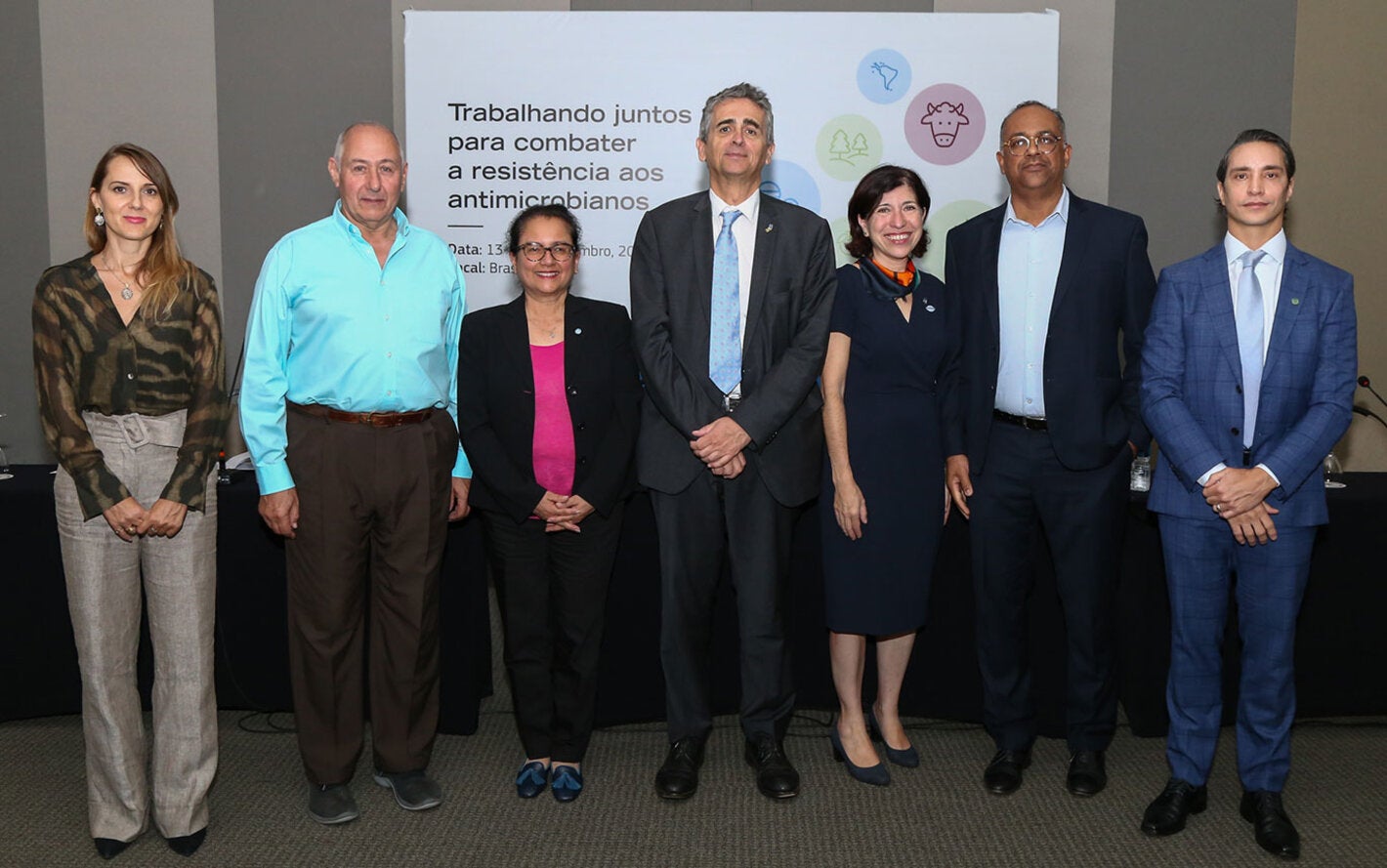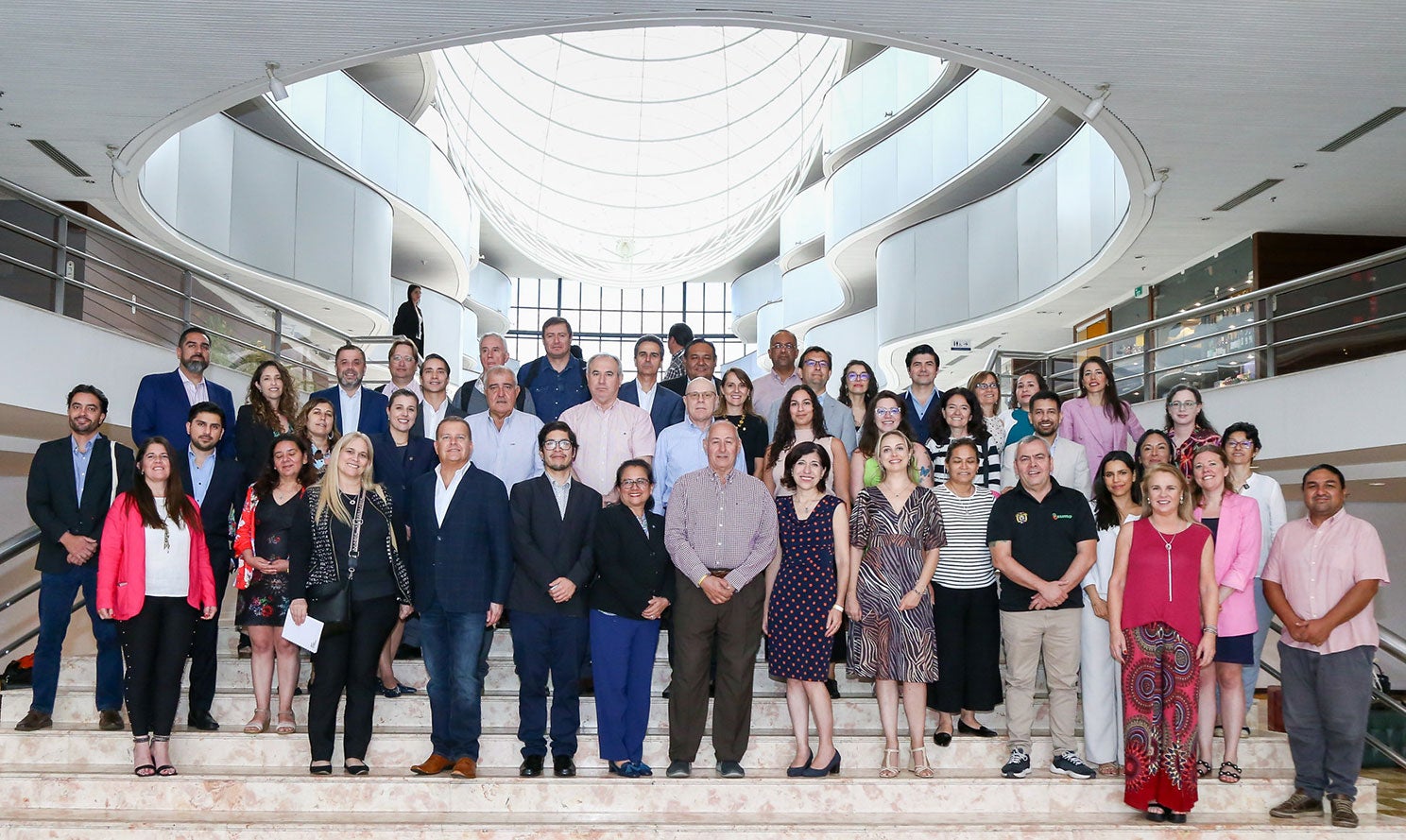
Representatives from seven countries gathered in Brasilia to deliberate on the achievements and future of the first multisectoral project to tackle antimicrobial resistance in the region, funded by the European Union.
Brasilia, Brazil, 14 November 2023 – Representatives from seven countries in the region convened to conclude the innovative tripartite regional project "Working Together to Fight Antimicrobial Resistance (AMR)" funded by the European Union (EU), in an event held in Brasilia on November 13 and 14. Organized by the Pan American Health Organization (PAHO), with the participation of the Food and Agriculture Organization of the United Nations (FAO), the World Organization for Animal Health (WOAH), and the Pan American Foot-and-Mouth Disease Center and Veterinary Public Health (PANAFTOSA), the event brought together health and agriculture authorities from Argentina, Brazil, Chile, Colombia, Paraguay, Peru, and Uruguay.
Jean-Pierre Bou, Deputy Head of the Delegation of the European Union to Brazil, emphasized the global importance of addressing Antimicrobial Resistance (AMR) amidst the challenges posed by the COVID-19 pandemic. " that we do not lose sight of other health challenges and reinforce our commitments in this fight," he asserted. The collaboration between the EU, PAHO, FAO, and WOAH stands out as an exemplary model for driving public health policies in Latin America.
At the opening ceremony, representatives from the Quadripartite Alliance (FAO, United Nations Environment Programme -UNEP-, WOAH, and PAHO) were joined by ministerial authorities from Brazil. The group underscored the importance and significant contribution that this pioneering project has made in addressing AMR through a comprehensive approach supported by governance involving various sectors.
"The project has brought important achievements to the countries that have participated in the project and beyond. Perhaps one of the effects that this project has had, due to the collaboration between different sectors and different actors at the national and international level, has been to catalyze public policies and advances in legislation, in regulations to contain antimicrobial resistance with a “One Health” approach”, said Dr. Pilar Ramon-Pardo, Head of the Special Program on Antimicrobial Resistance at PAHO.
Morning sessions involved Discussions on the project's achievements, lessons learned, and its impact on the region. Dr. Marisa Caipo, Food Safety and Quality Officer - FAO Regional Office for Latin America and the Caribbean, praised the coordinated and effective management among sectors, emphasizing the importance of working with three different organizations. "It is challenging to work with three organizations, as we do in the Tripartite, with different mandates and ways of managing and executing projects. But it has worked very well," she said.
In the afternoon, roundtable discussions focused on updating National Action Plans against AMR and strategic advances in legislation and regulation. Experiences in intersectoral legislation were shared by Argentina, Colombia, Paraguay, and Peru.
AMR leaders from the Joint Secretariat of the Quadripartite on AMR participated remotely, tackling worldwide challenges related to AMR and sparking enthusiasm for upcoming initiatives. The event concluded with a focus on future actions and the importance of maintaining political commitment and resources for the sustainability of similar projects. "The success and sustainability of this project, like any other in the future, depend on countries making the commitment at the highest political level to allocate logistical, financial, and decision-making resources for the continued implementation of activities. The project was a powerful incentive for many of the activities that were carried out, it planted more than a seed and now we must continue cultivating it," concluded Dr. Luis Barcos, Regional Representative of the World Organization for Animal Health for the Americas.
About “Working Together”
The four-year project focused on four key components: 1) Supporting countries in implementing National Action Plans against AMR with a "One Health" approach; 2) Strengthening surveillance of AMR, as well as surveillance of use and consumption of antimicrobials in people and animals; 3) Establishing Public Private Partnerships to promote the responsible use of antimicrobials and legislations related to AMR; and 4) Strengthening research and innovation on AMR, as well as alternatives to the use of antibiotics.
Although the project concludes its run, the Quadripartite Alliance reaffirms its commitment to supporting countries in continuing objectives and strategies to address the global issue of antimicrobial resistance.
Foto gallery: Working together to fight Antimicrobial Resistance - Project Closing Event
Links of interest




